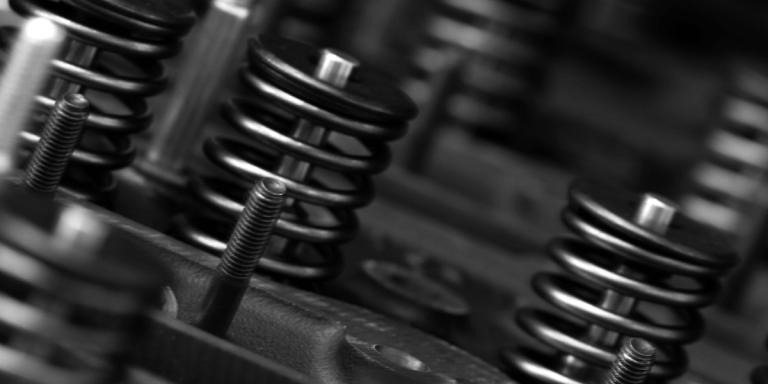
It’s been years in the making, but Dr. Mohamed El-Sayed was determined to build a lab that can shake things up – literally. Commonly referred to as the “Shaker Lab,” the Vehicle Durability and Integration Lab at Kettering University has been designed to put vehicles and components to the test by shaking them.
Lab equipment includes the shaker, consisting of four posts and two actuators (with plans for two additional actuators), and data collection equipment. When completed, the lab will have battery testing equipment, vibration measuring equipment, materials testing equipment and a vehicle assembly and disassembly area, enabling durability testing on full passenger vehicles or a bus powertrain.
“Currently we can test half a passenger vehicle and all sub-systems and components such as powertrains and suspensions,” said El-Sayed, professor of Mechanical Engineering and Editor-in-chief of the SAE International Journal of Materials and Manufacturing. Prior to joining Kettering in 1995 he served as a senior engineer, integration lead, and subject matter expert for General Motors since 1984 in the areas of durability, reliability and quality.
Funding for the lab came from a $2.5 million Michigan Economic Development Corporation (MEDC) 21st Century grant to Kettering and Michigan State University (MSU). The focus of the grant was to collaborate on the development and commercialization of hybrid buses. Kettering provided some matching funding and TRW also supported the lab.
The Shaker Lab does durability testing of components before they are put on the buses. “In 2005 we created a plan for researching and developing hybrid systems for mass transportation vehicles in collaboration with the Flint Mass Transit Authority (MTA), and I started to work on the grant with MSU,” said El-Sayed. “MSU built a dynamometer to accommodate heavy duty powertrains and we built the Shaker Lab for Integration and durability testing,” he explained.
Durability testing includes road load data acquisition, addressing vibration issues, materials testing and development, vehicle dynamics, and overall vehicle performance.
“This lab has tremendous potential,” said El-Sayed, “through funded research Kettering can provide a service to a considerable number of our corporate partners who may not have large durability equipments for developmental testing and validation of their products.”
Durability testing enables a company to determine the stresses under which their products can continue to perform – in other words, to make sure components aren’t going to fail under intended operating conditions, he explained. “We will also be able to test new components that are still in development,” El-Sayed added, such as those used in hybrid and electrical vehicles.
“Hybrid and electric vehicles have alternative, heavily electrical-based powertrains that present new challenges in durability compared to traditional, mechanical powertrain systems,” said El-Sayed. “Our Shaker Lab is designed for testing powertrains that are both mechanical and electrical. When there is a high voltage battery running under severe mechanical stresses, there is a lot to consider,” he explained. He is currently in discussion with a battery company about performing durability testing on their components.
Kettering students will also benefit from having a durability testing facility on campus. Those working in the field of automotive body design deal with durability issues or have thesis projects related to durability issues, according to El-Sayed. Having a facility such as the Shaker Lab will enable students to learn marketable durability testing processes and protocols.
Two student capstone projects in the fall term utilized the lab for durability testing on the suspension systems of SUVs and the durability of snowmobiles, and another student has started his undergraduate thesis project performing durability testing on race vehicles, such as the Mini Baja vehicle, to improve performance.
Additionally, Kettering SAE International competition teams, including the Formula Racing team, Mini Baja team and Clean Snowmobile Challenge team, have to focus on durability and performance as part of the requirements for competition. “Having a durability testing lab available for them will enhance their position in competition and enrich the educational aspect these competitions provide our students,” said El-Sayed.
El-Sayed would like to have the final pieces of equipment installed by the end of 2011. He has big plans to shake things up on campus.
Contact: Dawn Hibbard
810.762-9865
dhibbard@kettering.edu